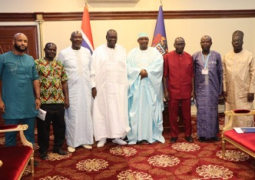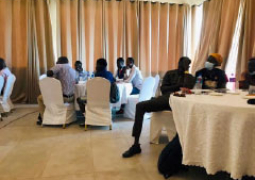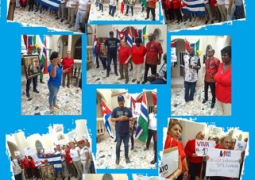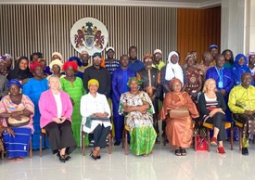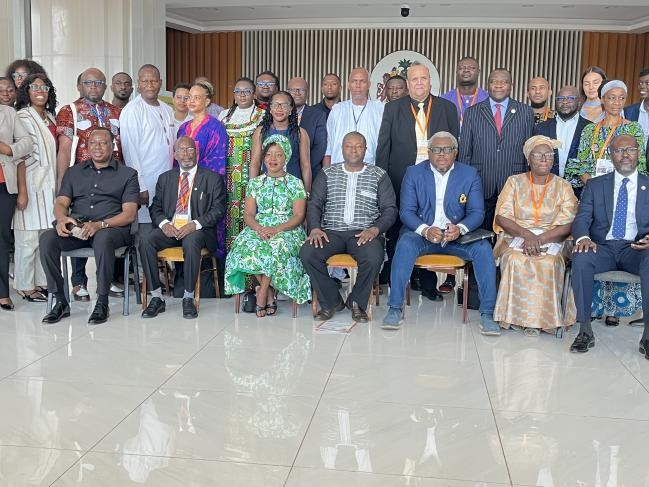
Organised by NANHRI in partnership with ACHPR, The Gambia’s National Human Rights Commission, DIGNITY – Danish Institute Against Torture, the Danish Institute for Human Rights (DIHR), the National Human Rights Council of Morocco, the Office of the High Commissioner for Human Rights (OHCHR), and Transparency International, the forum provided a dynamic platform for dialogue, exchange, and collective action.
Participants included representatives from African National Human Rights Institutions (NHRIs), Civil Society Organisations (CSOs), African Union (AU) bodies, United Nations (UN) agencies, development partners, and academic institutions. Discussions centred on how a Human Rights-Based Approach (HRBA) can drive inclusive, accountable, and sustainable development, in line with the AU’s Agenda 2063 and the UN’s 2030 Agenda for Sustainable Development.
The forum will culminate in the adoption of the Banjul Declaration, a document outlining key recommendations to guide African states, NHRIs, and development partners in embedding human rights into national and continental development strategies.
Delivering the keynote address, Emmanuel D. Joof, Chairperson of The Gambia National Human Rights Commission, emphasised that Africa’s development cannot succeed without dignity, equality, and accountability at its core.
“We are honoured to host this important gathering of Africa’s human rights community here at home,” Joof said. “Across our continent, we continue to see how development efforts fall short when human rights are ignored, and how societies thrive when dignity and accountability are prioritised.”
He noted that the issues under discussion — from torture prevention and anti-corruption measures to responsible business practices and the inclusion of marginalised groups — reflect “the daily realities that define whether our people live with dignity or despair.”
Joof also underscored the pivotal role of National Human Rights Institutions in bridging governance and citizens’ welfare. “We must ensure that justice systems protect rather than punish, and that development plans reflect the lived experiences of all — especially the most vulnerable,” he added.
Hannah Forster, Executive Director of the African Centre for Democracy and Human Rights Studies (ACDHRS), highlighted the strategic synergy between civil society and NHRIs in strengthening Africa’s human rights ecosystem.
“The NGO Forum and the NHRI Forum are complementary platforms — one amplifies civil society advocacy, while the other ensures institutional accountability,” she explained. “Together, they translate grassroots realities into policy action and regional accountability.”
From the UN perspective, Yvonne Fungai Tawanda Masarakufa, Human Rights Adviser at OHCHR, reaffirmed the UN’s commitment to strengthening national institutions that serve as bridges between governments and citizens.
“Independent and effective NHRIs are indispensable in ensuring transparency and the realisation of human rights for all,” she said. “At a time of shrinking civic space and growing inequality, this year’s forum takes on special significance.”
Echoing these sentiments, Remy Ngoy Luma, Chairperson of the African Commission on Human and Peoples’ Rights, stressed that human rights must move beyond legal frameworks to become a lived reality. He urged African states to uphold liberty, protect marginalised communities, including LGBTQ+ persons, and adopt zero tolerance for torture and corruption.
“If we want to combat corruption, we must begin by sweeping our own staircases,” he remarked, calling for moral leadership and institutional integrity across the continent.


